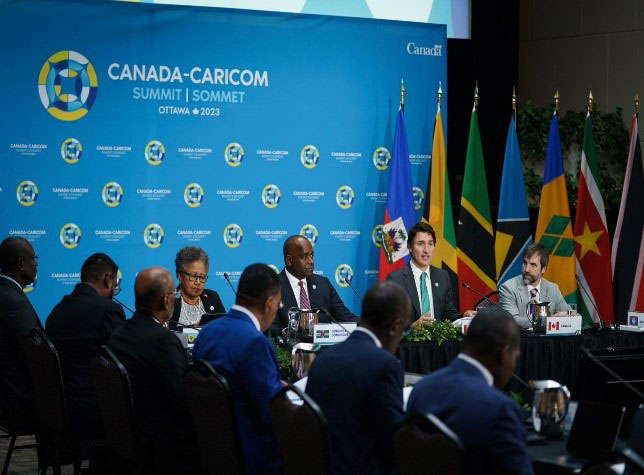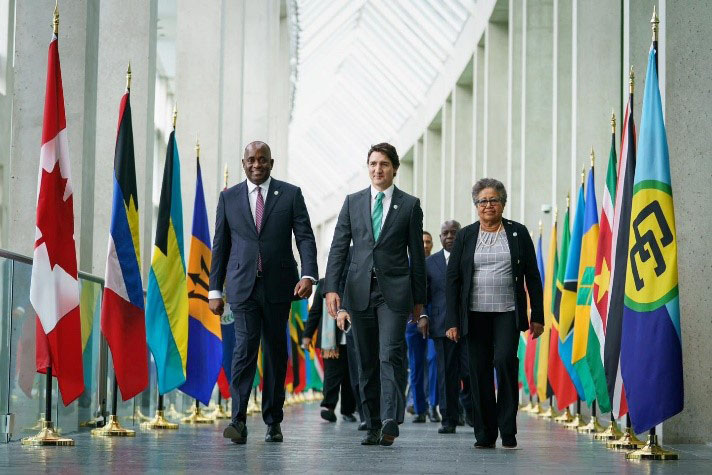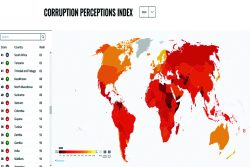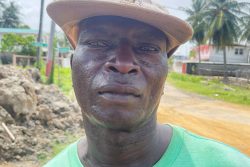Canadian Prime Minister Justin Trudeau yesterday said that regional security, poverty, climate change and strengthening relations with the Caribbean will be at the forefront at the ongoing inaugural Canada-CARICOM summit in Ottawa where a raft of new aid was announced.
Trudeau, Co-Chairman of the summit under the “Strategic Partners for a Resilient Future” in his opening remarks said “We’ve got three working sessions throughout the day today – where we’re going to be focused on creating good jobs, tackling poverty, growing the middle class, making life more affordable, fighting climate change, protecting the environment, and building a better future for Canadians and people across the Caribbean”.
“Today, I’m announcing funding to support renewable energy projects and systems, to address firearms trafficking, and to improve equitable access to vaccination” he told the summit.

The Canadian Prime Minister in the presence of CARICOM Chair, Dominican Prime Minister Roosevelt Skerrit also raised concerns over the growing political unrest in sister CARICOM state Haiti and announced that his government and other partnering states will be promoting Haitian-led solutions to the ongoing crisis in Port au Prince.
“We previously announced assistance and launched a multi-year training programme for the Haitian National Police (HNP) to help tackle gangs, strengthen anti-corruption mechanisms, and support the protection of Haitians afflicted by gang violence. Canada will also allocate $3.4 million of previously approved funds to address firearms violence in Haiti as well as support the HNP armoury and armorers” according to the Prime Minister.
He vowed that to keep people safe across the region, “Canada will also invest $3.2 million for the Caribbean Firearms Roadmap to address firearms trafficking and proliferation, and deepen coordination between the Canadian Armed Forces and the Caribbean Disaster Emergency Management Agency to provide rapid delivery of humanitarian assistance and disaster relief”.
The Prime Minister underscored his government’s commitment towards supporting CARICOM countries on critical health resources.
“Canada will allocate $18.3 million from Canada’s Global Initiative for Vaccine Equity to strengthen health and immunization systems and improve equitable access to vaccination in Haiti’, he announced.
The Prime Minister also announced intentions of advancing climate change economies through a new commitment of up to $58.5 million in partnership with the Caribbean Development Bank to support renewable energy projects and $6 million through the Caribbean Climate Smart Fund for resilient renewable energy systems.
He touched on the ongoing Israeli-Palestine conflict and called for an immediate resolution to the situation.
The Co-Chair reminded political leaders to denounce crimes against humanity and to stand in solidarity with those civilians who are currently affected.
Meanwhile, CARICOM Secretary General Carla Barnett in her address said that the ongoing summit poses another opportunity for dialogue on strategies to further strengthen bilateral relations cooperation and is a follow up on topical issues in wake of the recent CARICOM 44th Heads of Government Conference in the Commonwealth of The Bahamas earlier this year.
“These interactions are important to nurture closer relations with the view to the development of increased collaboration across various domains, including in the political, economic, environmental, health, scientific, and technical fields”, she said.
“Over the next two days, we will discuss a range of issues, including climate change and resilience, access to finance, reform of the international financial architecture, regional security, immigration, trade and investment, and the situation in Haiti”, the CARICOM General Secretary disclosed.
“Excellencies, the situation in our largest Member State, Haiti, continues to be a major concern for the Community. Collaboration is critical among parties willing to help resolve the security, humanitarian and political crises. The Government of Canada is part of the collective effort to support meaningful solutions to the multidimensional crisis in Haiti. CARICOM’s objective is to help our sister Member State achieve peace, stability, and critically, economic and social development well into the future”, she informed.
According to Barnett “CARICOM is committed to decisive action on climate change and building resilience in an inclusive and sustainable way in our Region. However, of equal urgency is working together to effectively reduce emissions and make a just transition to a clean energy future across the globe, to limit global warming to within 1.5 degrees Celsius. And, understanding that there are limits to adaptation, we also have to fairly and effectively address Loss and Damage”.
She said that CARICOM Member States and Regional Institutions have been collaborating with Canada on projects to combat the impact of climate change in the Region, including projects to enhance marine and coastal ecosystems management, and bolster water security.
“CARICOM’s Sustainable Agricultural Project to boost productivity, which has been implemented in five Member States, enjoyed significant support from Canada. This project helped to build climate resilience in agriculture and, by extension, contributed to CARICOM’s push to reduce our food import bill by 25% by 2025, and thereby build food and nutrition security for our Region”, Barnett underscored.
“Among other initiatives, Canada has also provided support to some small and medium-sized enterprises involved in fisheries, aquaculture, marine biotechnology, ocean renewable energy, and high-tech marine services” she told the delegation.
“This Summit will also provide a space to shape the Region’s financial and economic future, through trade and investment strategy discussions. In this regard it will explore practical ways in which Canada can support the Region, in a manner that is uniquely beneficial to Canadian business interests and capital markets. Enhancing these commercial relationships and promoting multisectoral business and investment opportunities are critical to foster economic growth, job creation, and prosperity for both sides”, she said.
The CARICOM Secretary General reminded that the summit is being convened against the backdrop of an unforgiving international environment marked by multifaceted global instability. As export-oriented small economies, still recovering from the COVID-19 pandemic and facing the ongoing challenges posed by climate change, the growing instabilities pose additional risks to the Community’s outlook for economic growth.
“Dealing effectively with these challenges will require meaningful action on the call for improved access to affordable finance and fundamental reform to the international financial architecture. The discussions around the Bridgetown Initiative will therefore feature in these discussions”, she said.
“This Summit will also provide a space to shape the Region’s financial and economic future, through trade and investment strategy discussions. In this regard will explore practical ways in which Canada can support the Region, in a manner that is uniquely beneficial to Canadian business interests and capital markets. Enhancing these commercial relationships and promoting multisectoral business and investment opportunities are critical to foster economic growth, job creation, and prosperity for both sides”. Barnett further added.
The Canada-CARICOM Summit will conclude today. Trudeau will host a trade and investment roundtable to bring together leaders and investors on new opportunities for workers and businesses in Canada and the Caribbean.
Guyana’s President Irfaan Ali was also joined by other regional leaders like Barbados Prime Minister Mia Amor Mottley to advance shared priorities in several areas, including building inclusive and sustainable economies and increasing trade and investment.







